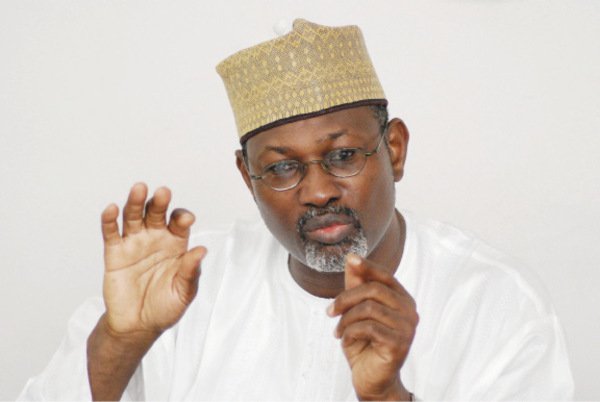POLITICS
Jega urges review of extant laws to deepen Nigeria’s democracy

Prof. Attahiru Jega, former Chairman, Independent National Electoral Commission (INEC) has called for a review of extant laws to further deepen democracy in Nigeria.
Jega made the call on Tuesday n a paper he presented at a one-day National Democracy Day Anti-Corruption Summit held in Abuja.
The paper entitled: “Curbing Electoral Spending And Voter Inducement In Nigeria: The Role Of Regulatory And Law Enforcement Agencies”.
In his recommendations, Jega said that more attention should be paid to the strengthening of campaign finances and legislation against vote buying.
“The objective is to impose limits on campaign and general political finance spending and impose stiff penalties for none compliance,” he said.
He said that corporate contributions to political parties and candidates should be banned.
Other recommendations Jega made included strengthening the capacity and relative independence of security and anti-corruption agencies as well as INEC.
“This is to monitor political actors and enforce compliance with legal requirements of campaign financing and vote-buying in the Constitution and the Electoral Act without fear, partiality or favour,” he said.
He further said that electoral integrity was key to Nigeria’s democratic and socio-economic development.
“All hands need to be on deck to protect and defend the integrity of elections in the country,” jega said.
Similarly, former President, Court of Appeal, Ayo Salami, who spoke on “the Use of Public Funds In Election Litigation And the Integrity of The Judiciary”, said that the administration of President Muhammad Buhari had shown demonstrable character, commitment and sincerity in the fight against corruption.
Salami said:“I reliably gathered that there were about 639 pre-election cases that arose from the various primaries and 736 election petition cases emanating from from the just concluded electotions.
“This clearly reveals the heated nature of electoral contest in Nigeria.
“Notwitstanding that our laws provide for resolution of disputes arising from electoral process through courts, the alarming number of election petitions in court leaves much to be desired.
“This development calls for a review of our electoral process.”




 Davido's Net Worth & Lifestyle
Davido's Net Worth & Lifestyle 
